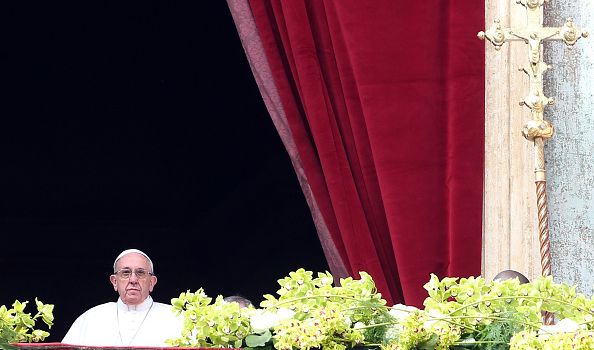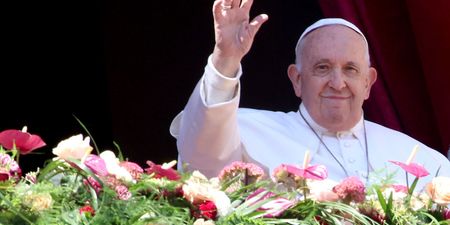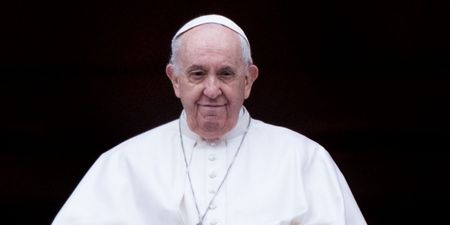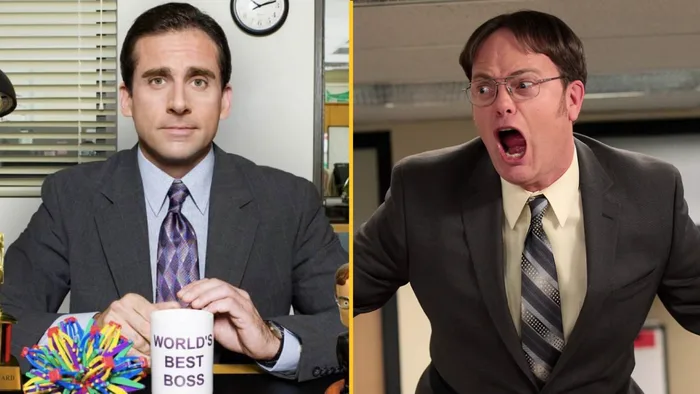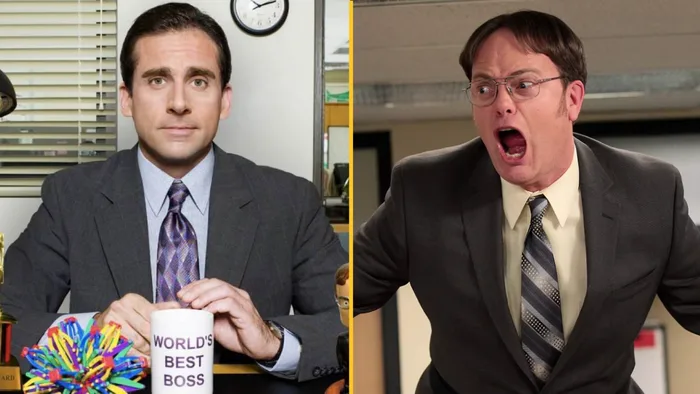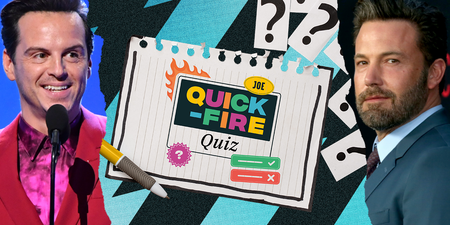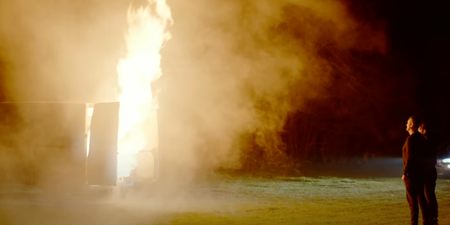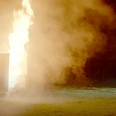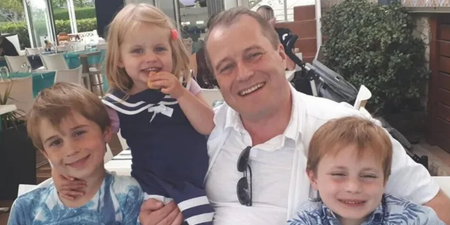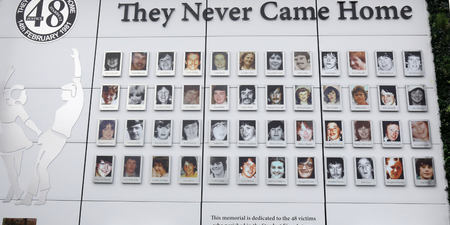On Thursday, An Garda Síochána announced the road closure system to be put in place for the visit of Pope Francis in August.
The closures will include Dublin’s Red Line Luas track between Blackhorse and Smithfield. There will also be staggered road closures across Dublin City. From 6pm on Saturday the centre of Knock Village will be on lockdown.
This is not the kind of closure that Ireland needs from the Catholic Church.
Unlike Pope John Paul II’s visit in 1979, when the entire country was united beneath the banner of being forced to do whatever the hell the church told us, this visit has already proven wildly divisive.
There was a widespread movement from protesters to buy tickets to see the Pontiff and burn them, simply so that lay Catholics couldn’t attend. But the Pope should be coming here. To Knock. To Croke Park. To the Phoenix Park. He should be coming here to apologise on behalf of his church.
A popular graphic that did the rounds online throughout this year’s referendum campaign provided the Magdalene laundry list of every progressive step that the church has opposed: the introduction of women’s sanitary products, Noel Browne’s Mother and Child Scheme, the introduction of contraception, the decriminalisation of homosexuality, divorce again, same-sex marriage, abortion in cases where the mother’s life is at risk.
And these are just the instances where the church failed to implement its will. The true horror stories were prologued by the church’s successes. The Magdalene laundries, the mother and baby homes, the covering up of sexual abuse, the beatings of children by the nuns and Christian Brothers who masqueraded as their teachers.
None of us is unfamiliar with the story. Not one of us is a stranger to the pain. Yes, the Catholic Church and Ireland. After all these years, what is there that’s left to be said?
Well, “sorry,” for a start.
Though there may seem something haughty in demanding an apology from the Pope, it is far from a radical suggestion.
Earlier this year, Pope Francis issued a personal apology to bishops of Chile, admitting that he made serious mistakes in reacting to their country’s sex abuse crisis.
“As for my own responsibility, I acknowledge, and I want you to faithfully convey it that way, that I have made serious mistakes in the assessment and perception of the situation, especially because of the lack of truthful and balanced information.
“Right now I ask forgiveness from all those I offended and I hope to be able to do so personally.”
There is, of course, no argument to be made that Pope Francis bears any personal responsibility for the crimes of the Catholic Church in Ireland. He does not. But those crimes all happened in the name of the Lord, and Pope Francis is supposedly the closest thing we’ve got before we all get our chance to take it up with Him in the afterlife.
However, there are some changes we could demand in terms of the nature of Pope Francis’ apology.
Foremost, in the Chilean example, Pope Francis apologised to the bishops of Chile. In Ireland, he need not apologise to that rung of the church. He need address his apology only to the people of Ireland.
After all, this is a country where a bishop’s opinion on a medical matter can still make the front page of a national newspaper.
A country where spokespeople for Catholic interest groups are welcomed on televised debate panels to clash heads with doctors and legal experts.
A country where the fists of the Catholic Church still swing with blind abandon. Where the bolts of the church still lock our doors and the cold breath of the clergy still blows out our candles at night. This is a country where the fear of God is built into the walls of our hospitals and scratched into the blackboards of our classrooms. Hanging above our mantles and weighing heavy on our hearts.
Just this week, reports emerged that Irish Catholic bishops had issued an edict advising the 20 main Catholic-associated healthcare providers to effectively flout the law in cases of abortion.
Three Dublin hospitals are owned by the Sisters of Mercy – the Mater Misericordiae Hospital, the Children’s University Hospital at Temple Street and Cappagh National Orthopaedic Hospital. The same Sisters of Mercy were named in the 2009 Ryan Report which investigated institutional abuse, and pledged the payment of €127.5 million to the redress scheme proposed by the government.
Advocacy group Irish Survivors of Child Abuse has since called for papal intervention to actually force the Sisters of Mercy to pay the money they pledged in 2002. The Sisters of Mercy have said they had honoured all of their commitments, and that they “had always made clear that the value of (their) contribution was subject to the fluctuations in value attaching to individual properties”.
Some hospitals have ghosts. Our ghosts are on the lease.
The most meaningful discussion Ireland can have with the leader of its faith right now is a conversation about why the church left Ireland to suffer so long. We are not a country in need of divine forgiveness. We are a people owed a profound penitence.
Vital organs of our society remain under the control of an organisation whose leader is set to visit us next month. For as long as the Catholic Church has its fingers dug into the soil of our country, and as long as the Pope leads the church, he bears a responsibility to you. His organisation has done untold damage to Irish society. If he is capable of seeing that, as he appears to be, then he must speak on it.
He must openly acknowledge the harms done by his organisation, accept responsibility on their behalf, and allow Ireland to continue its evolution without the undue influence of institutions that have done so much damage.
In April, Pope Francis committed himself to “the goal of repairing as much as possible the scandal and re-establishing justice” in Chile. We must now demand he does the same for Ireland.
LISTEN: You Must Be Jokin’ with Aideen McQueen – Faith healers, Coolock craic and Gigging as Gaeilge
